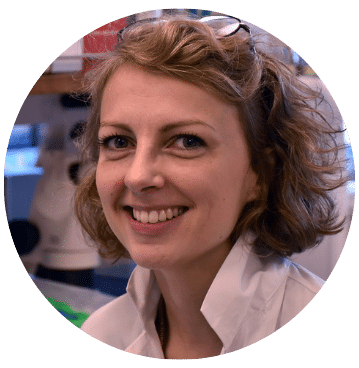Researcher Spotlight: Coraline Mlynarczyk, PhD
Joan & Sanford I. Weill Medical College of Cornell University

Diffuse Large B Cell Lymphoma (DLBCL) is a heterogenous B-cell malignancy, with each patient presenting with a heavy and diverse burden of alterations in their DNA. Therefore, finding a cure for DLBCL is a challenge that involves developing multiple therapeutic options tailored for each patient. This requires the understanding of how each one of these alterations contributes to and shapes the disease. Dr. Coraline Mlynarczyk’s LRF research project aims to identify how altered B cells gain a fitness advantage that allows them to resist treatment and what their metabolic dependencies are. “This work will provide the mechanistic basis for and identify the metabolic vulnerabilities of difficult-to-treat DLBCLs and contribute to designing new therapeutic approaches for currently incurable patients.” she states. “Furthermore, DLBCL develops from a specific and transient population of B cells that take part in the adaptive immune response and understanding how immune processes are regulated is necessary to design effective treatments.”
Dr. Mlynarczyk obtained her MS at the University Pierre and Marie Curie in Paris, France, and received her PhD from the University of Paris Diderot in Paris, France. Her passion for lymphoma research is driven by her love for discovering how things work. “Lymphoma research is especially inspiring due to the complexity of the cells at the origin of B cell lymphoma and the resulting heterogeneous nature of the disease,” Dr. Mlynarczyk says. Within the next ten years, Dr. Mlynarczyk hopes to be running her own independent research lab. “I also hope I can maintain close interactions with the LRF community, who has been tremendous in supporting our research, in fostering new collaborations, and in creating meaningful contacts between labs, the clinic, and patients.”

